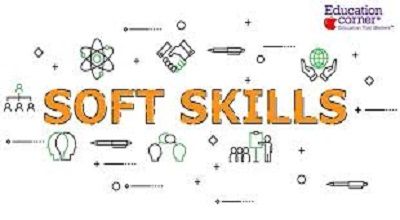Soft Skills & Stem Education
You know Soft Skills and STEM Education are two distinct but interconnected concepts in education and professional development.
Soft Skills:
Soft skills refer to the non-technical, interpersonal, and personal attributes that enable individuals to effectively interact with others, work well in teams, and navigate various social and professional situations. These skills are often considered crucial for personal and professional success, regardless of the specific field or industry. Some common soft skills include:
- Communication: The ability to convey information clearly and effectively, both verbally and in writing.
- Teamwork: Collaborating and working harmoniously with others to achieve common goals.
- Problem-Solving: Analyzing situations, identifying challenges, and developing solutions.
- Adaptability: Being open to change, learning, and adjusting to new situations.
- Time Management: Efficiently organize and prioritize tasks to meet deadlines.
- Leadership: Guiding and motivating others, taking initiative, and making decisions.
- Critical Thinking: Evaluating information, making informed judgments, and reasoning logically.
- Emotional Intelligence: Understanding and managing one’s own emotions, as well as empathizing with others.
- Conflict Resolution: Resolving disagreements and conflicts constructively.
- Networking: Building and maintaining relationships for professional growth.
STEM Education:
Here, STEM stands for Science, Technology, Engineering, and Mathematics. STEM education is an interdisciplinary approach to learning that integrates these four disciplines to teach students problem-solving, critical thinking, and technical skills. So, guys, STEM education aims to prepare students for careers in fields that are heavily reliant on these subjects, such as engineering, computer science, biology, physics, and more. The goal is to equip students with the knowledge and skills needed to address complex real-world challenges. STEM education encourages hands-on learning, inquiry-based exploration, and the application of theoretical knowledge to practical scenarios.
Connection Between Soft Skills and STEM Education:
While STEM education primarily focuses on developing technical skills and knowledge in science, technology, engineering, and mathematics, the importance of soft skills in STEM cannot be overlooked. Professionals in STEM fields also require strong soft skills to effectively communicate their ideas, collaborate with colleagues, present their work, and adapt to changing circumstances. For example, a software engineer might need to collaborate with a diverse team to develop a new application, requiring not only technical expertise but also effective communication and teamwork.
In summary, soft skills are essential attributes that contribute to an individual’s overall effectiveness, while STEM education emphasizes technical proficiency in science, technology, engineering, and mathematics. The combination of strong soft skills and STEM education can create well-rounded individuals who are not only capable in their technical roles but also adept at working in diverse and dynamic environments.
What skills are needed for the STEM field?
The STEM (Science, Technology, Engineering, and Mathematics) field encompasses a wide range of disciplines and industries, each with its own specific requirements. However, several key skills are generally essential for success in the STEM field:
- Critical Thinking: The ability to analyze complex problems, evaluate evidence, and make informed decisions is crucial in STEM. Critical thinking helps in approaching challenges systematically and developing innovative solutions.
- Problem-Solving: STEM professionals often encounter intricate problems that require creative problem-solving. Being able to identify the root causes of issues and develop effective solutions is essential.
- Analytical Skills: Analyzing data, conducting experiments, and interpreting results are fundamental skills in STEM. The ability to process and interpret information accurately is vital for making sound conclusions.
- Mathematical Skills: Mathematics is the foundation of many STEM disciplines. Proficiency in mathematical concepts and techniques is necessary for tasks like modeling, calculations, and data analysis.
- Technical Skills: Depending on the specific field, technical skills can range from programming and coding (in computer science and engineering) to lab techniques (in biology and chemistry). Proficiency in using relevant tools, software, and equipment is critical.
- Attention to Detail: In STEM, small details can have significant impacts on outcomes. Paying attention to details is important for conducting experiments accurately, coding without errors, and ensuring precision in calculations.
- Research Skills: STEM professionals often need to conduct research to explore new ideas, discover solutions, and stay updated with advancements in their fields. Knowing how to gather, assess, and incorporate information from reliable sources is key.
- Communication Skills: Being able to convey complex ideas to different audiences, including non-technical stakeholders, is crucial. Clear communication helps in sharing findings, collaborating with colleagues, and presenting research.
- Teamwork and Collaboration: Many STEM projects require collaboration with colleagues from diverse backgrounds. The ability to work effectively in teams, share knowledge, and leverage collective expertise is valuable.
- Adaptability and Continuous Learning: The STEM field is constantly evolving with new technologies and discoveries. Being open to learning, adapting to changes, and staying updated with the latest trends is essential.
- Ethical and Professional Conduct: Ethical considerations are important in STEM, especially in areas like research and technology development. Upholding professional standards and ethical conduct is essential for maintaining credibility and trust.
- Project Management: For larger-scale projects, the ability to plan, organize, and manage resources and timelines is crucial. Project management skills help ensure that tasks are completed efficiently.
- Creativity: Creativity is vital for innovation and finding novel solutions. In addition to technical knowledge, creative thinking helps in pushing the boundaries of existing knowledge.
- Coding and Programming Skills: In technology and computer science fields, proficiency in coding languages and programming is often necessary for developing software, applications, and systems.
Remember that the specific skills needed can vary based on the STEM discipline, industry, and role. However, developing a combination of technical expertise and soft skills will set you up for success in the dynamic and ever-changing world of STEM.
